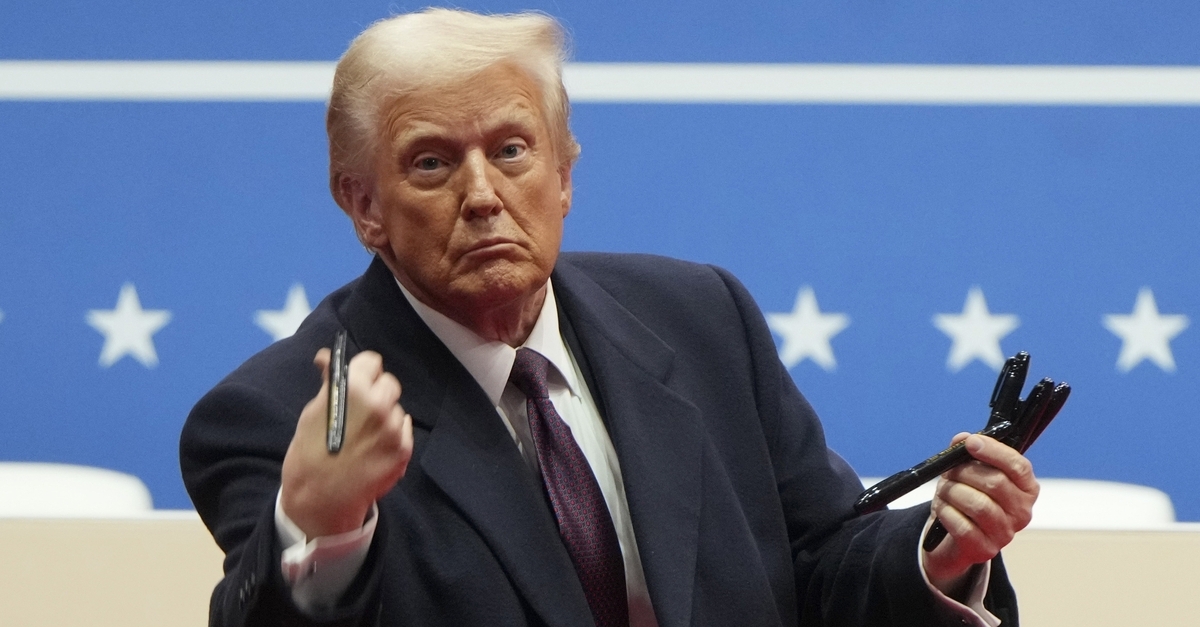
- CONTINUE READING BELOW -
Attorneys for the U.S. Department of Justice on Thursday said they could not guarantee that the recently compiled list identifying the FBI employees involved in the investigation into the Jan. 6, attack on the Capitol would not be publicly released by other entities or agencies of the federal government.
Appearing in federal court in Washington, D.C., the DOJ told U.S. District Judge Jia M. Cobb that the information on the agents had not been “officially disseminated” outside of the department — meaning it had not been given to the White House and President Donald Trump or provided to the newly formed Department of Government Efficiency (DOGE) and Elon Musk — but was unable to assure the court that it would not be shared at all with other federal departments.
- CONTINUE READING BELOW -
The proceedings stemmed from a pair of lawsuits filed earlier this week alleging that the Trump administration appeared to be planning a “purge” of the FBI’s case agents based on assignments that “upset” the president and possibly releasing identifying information about the agents publicly, which would expose them to potential harm from the approximately 1,500 convicted rioters pardoned by Trump immediately after taking office.
Shortly before the hearing began, the DOJ filed a memorandum opposing the plaintiffs’ request for a temporary restraining order prohibiting the dissemination of information, asserting that the department was simply commencing a “review process” in conjunction with President Trump’s executive order seeking to end what he referred to as “the weaponization of the federal government.”
During the hearing, the Justice Department said it would agree to enter into a temporary consent agreement representing that it would not disseminate the information to the public, but could not make the same guarantee about the rest of the federal government. That did not quell concerns from attorneys representing the FBI agents seeking to prohibit the release of the information due to fear of professional retaliation or physical harm.
“We are one step away from the [agents’] names being released,” attorneys for the plaintiffs said, a sentiment that was repeated multiple times throughout the proceedings. The plaintiffs’ attorneys went through multiple examples of the Trump administration and Musk releasing the names of public servants they had either ousted or sought to oust in the short time they’ve been in power and continued to insist that an agreement that only bound the DOJ was insufficient.
“We don’t have assurances that DOGE does not have access to DOJ systems,” one of the plaintiffs’ attorneys said. “We don’t have assurances other nongovernment persons operating within DOJ would not immediately release those names.”
Referring to the Jan. 6 convicts who had been granted pardons, plaintiff attorney Mark Zaid told the court that at least one individual had already “threatened to kill the agents who worked on their case.”
Another attorney for the plaintiffs argued it would be a “big problem” if “the list made its way to Musk” before the court could stop the information from getting out.
Cobb, who repeatedly told the parties that she understood how difficult it was to argue their cases on such an abbreviated timeline, seemed slightly perturbed by the DOJ’s inability to speak for the entire federal government, pointing out that it was one of the named defendants and thus a party to the case.
At one point, the DOJ’s attorney said he could not “make representations for the government as a whole” regarding the dissemination of the agents’ information and Cobb responded by asking, “If not you, then who do I have to get in here?”
The DOJ pushed back on the plaintiffs’ claims, repeatedly emphasizing that the “imminent harm” of having their information publicly exposed was entirely “speculative” and therefore could not be the basis for the court issuing an order that encompassed the entirety of the federal government.
Plaintiffs’ attorneys responded by asking the court to prohibit dissemination of the information in the short term, noting that the DOJ had already said on the record that it had no plans to share the information or release it publicly. According to the plaintiffs, that meant the government would suffer no harm in agreeing that it would remain within the department.
The proceedings were paused several times as the DOJ reached out to — and at times successfully got in touch with — “decision makers” who could authorize a broader agreement regarding the safekeeping of the agents’ information. Ultimately, the two sides agreed to return to court again on Friday to continue discussions.